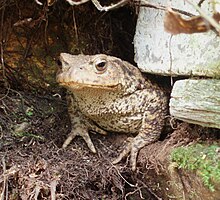Women accused of being witches were often 'tested' by being placed under the water - if they drowned then they were innocent, if they didn't drown then they were witches and had to be killed (i.e. if you were accused of being a witch you died). Witches could be defined anywhere from women who used herbs or midwifes, to someone who owned a black cat.
Often witches were viewed as the fates, or at least as someone who had made a deal with the devil and had gotten their power from that, because of this 'bond' they were able to predict and somewheat control others lives. Macbeth becomes completely obsessed with the future the witches foretell for him. Witches had many 'magical' or 'mystical' powers. As well as forseeing the future they could make magical potions.
As Macbeth 4:1 records: "Scale of dragon, tooth of wolf,/ Witches' mummy, maw and gulf/ Of the ravin'd salt-sea shark,/ Root of hemlock digg'd i' the dark,/ Liver of blaspheming Jew,/ Gall of goat, and slips of yew/ Silver'd in the moon's eclipse,/ Nose of Turk and Tartar's lips,/ Finger of birth-strangled babe/ Ditch-deliver'd by a drab,/ Make the gruel thick and slab/ Add thereto a tiger's chaudron/ For the ingredients of our cauldron."
 Witches made strange potions, and conjured strange demons out of the dark depths. They also had 'familiars' - which is why some people are superstition of black cats even now! All of these traits can be found in Macbeth.
Witches made strange potions, and conjured strange demons out of the dark depths. They also had 'familiars' - which is why some people are superstition of black cats even now! All of these traits can be found in Macbeth. It is interesting the effect the witches had in Macbeth - although they could supposedly simply tell the future, Macbeth felt the urge to go and act out his own 'fate.' It makes the witches seem not to be simple fates, but servants to a greater force.
